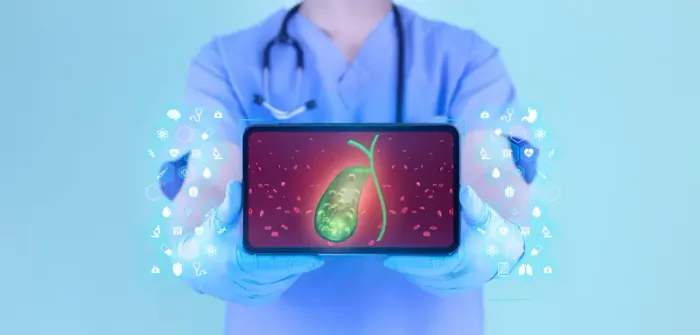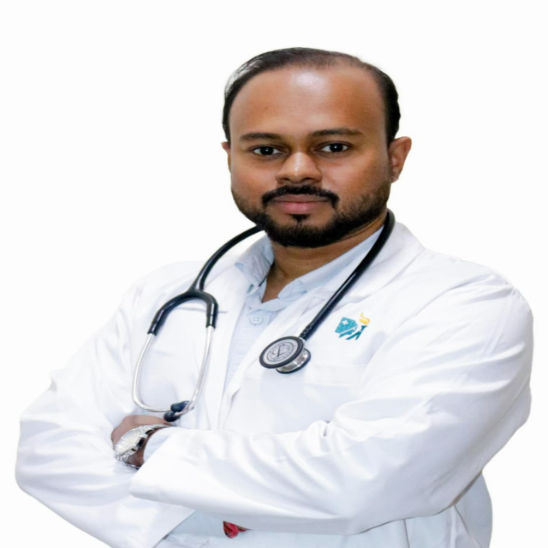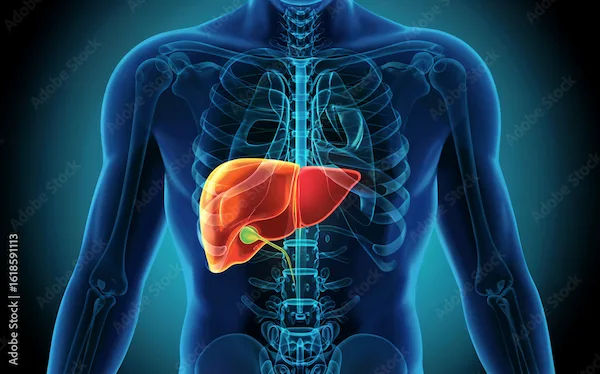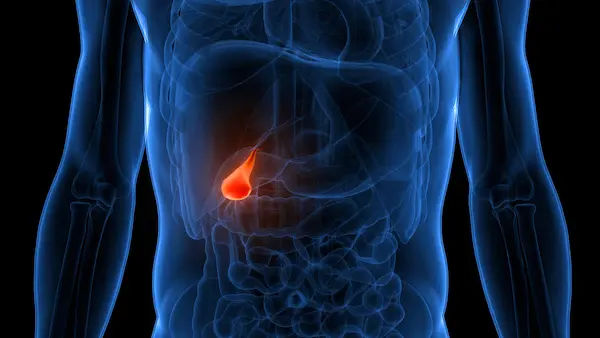Your Guide to Gall Bladder Clinics, Diagnostics, and Treatment Plans
Learn about gall bladder clinics, common symptoms, diagnostic tests, and treatment options—including surgery and lifestyle tips—for better digestive health.


Introduction
Dealing with persistent abdominal pain, especially after a fatty meal, can be alarming. If you've been told your discomfort might be related to your gallbladder, you're likely wondering what the next steps are. This is where specialised gall bladder clinics come into the picture. These clinics are dedicated to diagnosing, managing, and treating conditions related to this small but significant organ. Whether you're experiencing sharp, sudden pain or have been advised to explore surgical options, understanding what these clinics offer can empower you to make informed decisions about your health. This comprehensive guide will walk you through everything you need to know—from recognising symptoms and what to expect during your first visit, to exploring treatment options and choosing the right clinic for your needs. Our goal is to demystify the process and provide you with the knowledge to confidently navigate your path to better digestive health.
Understanding Your Gallbladder: The Unsung Hero of Digestion
What Does the Gallbladder Do?
Tucked just beneath your liver, the gallbladder is a small, pear-shaped organ that acts as a storage reservoir for bile. Bile is a fluid produced by your liver that is essential for digesting fats. When you eat, your gallbladder contracts and releases stored bile into the small intestine, where it gets to work breaking down dietary fats into fatty acids, which your body can then absorb. Think of it as a dedicated delivery system that ensures you have the right amount of bile at the right time for efficient digestion.
Common Gallbladder Problems
The most prevalent issue affecting the gallbladder is the formation of gallstones, a condition medically known as cholelithiasis. Gallstones are hardened deposits of digestive fluid that can range in size from a grain of sand to a golf ball. These stones can block the bile ducts, leading to sudden pain, inflammation (cholecystitis), or infection. Other less common problems include gallbladder polyps, porcelain gallbladder (calcification of the wall), and gallbladder cancer.
Consult a Gastroenterologist for the best advice
When to Seek Help: Recognising Gallbladder Symptoms
The Classic Gallstone Attack
A gallstone attack, or biliary colic, is often the first clear sign of a problem. This isn't a dull ache; it's a sudden, intense pain that typically occurs in the upper right section of your abdomen, sometimes radiating to your back or right shoulder blade. This pain often strikes after eating a heavy, fatty meal and can last from several minutes to a few hours. It may be accompanied by nausea and vomiting. It's crucial not to ignore these symptoms of gallstones, as they indicate that a stone is causing a blockage.
Chronic vs. Acute Gallbladder Issues
While a gallstone attack is acute and intense, some people experience chronic gallbladder disease. This can manifest as more persistent, dull pain, bloating, and indigestion, especially after meals. However, if the pain is severe, persistent for more than a few hours, and accompanied by fever, chills, or yellowing of the skin and eyes (jaundice), it constitutes a medical emergency, and you should seek immediate care.
What is a Gall Bladder Clinic? Your Hub for Specialised Care
A gall bladder clinic is not just a single room but a comprehensive center of excellence, usually housed within a hospital's gastroenterology or surgical department. It brings together a multidisciplinary team of experts, including gastroenterologists, hepatobiliary surgeons, radiologists, and dietitians, all focused on diseases of the gallbladder and biliary system. The advantage of such a clinic is the coordinated care. Instead of visiting different specialists in separate locations, your diagnosis, treatment planning, and follow-up are streamlined under one roof. This team-based approach ensures that you receive an accurate diagnosis and a treatment plan tailored specifically to your condition and overall health. If your primary care physician suspects a gallbladder issue, a referral to such a specialised clinic is often the most efficient next step.
Your First Visit to a Gall Bladder Clinic: What to Expect
Walking into a specialist clinic can be daunting, but knowing what to expect can ease anxiety. Your first appointment is primarily a comprehensive evaluation designed to understand your unique situation.
Key Questions Your Doctor Will Ask
Be prepared to discuss your medical history in detail. Your doctor will likely ask:
1. Where exactly is the pain located, and what does it feel like (sharp, dull, cramping)?
2. Does the pain occur after eating? Are certain foods, particularly fatty ones, a trigger?
3. How long do the episodes last?
4. Have you experienced nausea, vomiting, fever, or changes in urine/stool colour?
5. What is your general diet and lifestyle like?
The Physical Examination
The doctor will perform a physical exam, paying close attention to your abdomen. A key test is Murphy's Sign, where the doctor presses gently under your rib cage on the right side and asks you to take a deep breath. If you experience sharp pain and catch your breath as your inflamed gallbladder touches the doctor's fingers, it's a strong indicator of cholecystitis.
Diagnostic Tools: How Gallbladder Issues are Confirmed
Suspicion based on symptoms is one thing; confirmation is another. Gall bladder clinics are equipped with advanced technology to get a definitive diagnosis.
Imaging Tests (Ultrasound, CT Scan, HIDA Scan)
An abdominal ultrasound is the most common, non-invasive, and highly effective first step. It uses sound waves to create images of your gallbladder, allowing radiologists to see gallstones, sludge, or signs of inflammation. In more complex cases, a CT scan or an HIDA scan (which tracks the production and flow of bile from your liver to your small intestine) may be used to assess gallbladder function and detect blockages.
Blood Tests and Their Significance
Blood tests can reveal important clues. Elevated white blood cell counts suggest infection or inflammation. Liver function tests can show if there's bile duct blockage, and high levels of bilirubin can cause jaundice. If your symptoms are vague, your doctor might recommend these tests to rule out other conditions. Apollo24|7 offers convenient home collection for tests like liver function panels, saving you a trip to the lab.
Get Your Health Assessed
Exploring Your Treatment Options at a Gall Bladder Clinic
The course of treatment depends on the severity and nature of your condition. The specialists at the clinic will discuss all viable options with you.
Non-Surgical Management: When is it an Option?
For patients who are not good candidates for surgery, or who have very small, cholesterol-based stones, non-surgical treatment for gallstones may be considered. This can involve oral medications (bile acid pills) to dissolve the stones over months or years, or a procedure called lithotripsy to break up the stones with shock waves. However, these approaches are less common because stones have a high recurrence rate once the treatment stops.
Laparoscopic Cholecystectomy: The Gold Standard
For symptomatic gallstones, the most effective and definitive treatment is surgical removal of the gallbladder, known as a cholecystectomy. The laparoscopic approach is the modern standard.
The Procedure: What Happens During Laparoscopic Surgery?
This is a minimally invasive procedure. Instead of one large incision, the surgeon makes three or four small keyhole incisions in your abdomen. A tiny camera (laparoscope) is inserted through one incision, projecting images onto a monitor, while specialised surgical instruments are inserted through the others to carefully remove the gallbladder. The benefits are significant: less post-operative pain, minimal scarring, a shorter hospital stay (often same-day or 23-hour admission), and a faster return to normal activities.
Recovery and Aftercare
Most people can go home the same day or the day after surgery. You'll be advised to avoid heavy lifting for a few weeks. Mild soreness is common, but severe pain should be reported. If your condition does not improve after surgery or pain persists, book a physical visit to a doctor with Apollo24|7 for a follow-up evaluation.
Open Cholecystectomy: For Complex Cases
In about 5% of cases, an open surgery with a larger incision may be necessary. This is typically reserved for situations with severe inflammation, infection, scarring from previous surgeries, or anatomical variations that make laparoscopic surgery risky. The recovery time for an open cholecystectomy is longer.
How to Choose the Right Gall Bladder Clinic for You
Selecting where to receive care is a critical decision. Here are key factors to consider:
Credentials and Expertise to Look For
Look for a clinic staffed by experienced hepatobiliary surgeons and gastroenterologists. Check their qualifications, years of experience, and especially their volume of laparoscopic cholecystectomies performed. A surgeon who routinely performs a procedure is likely to have better outcomes.
Technology and Facility Standards
Ensure the clinic is part of a hospital equipped with modern laparoscopic towers, high-resolution ultrasound machines, and a fully equipped emergency department. Advanced technology directly correlates with better surgical precision and patient safety.
Considering Location and Support Services
While expertise is paramount, the clinic's location matters for pre-operative visits and follow-ups. Also, consider if the facility offers comprehensive support, including nutritional counselling from a dietitian, which is invaluable for life after gallbladder removal.
Life After Gallbladder Removal: Diet and Lifestyle Adjustments
You can live a perfectly normal life without a gallbladder. Your liver will continue to produce bile, but it will drip continuously into your intestine rather than being stored and released in bursts. Some people experience more frequent or looser bowel movements, especially after fatty meals, as the bile is less concentrated. This usually settles down within a few weeks to months. A gradual reintroduction of fats and an increase in dietary fiber can help manage this transition smoothly. Staying hydrated is also key.
Conclusion: Taking the Next Step Towards Better Health
Navigating a potential gallbladder issue can feel overwhelming, but understanding the role of specialised gallbladder clinics demystifies the journey. From accurate diagnosis to minimally invasive treatment and supportive aftercare, these clinics are designed to provide you with the highest standard of care. If you're experiencing symptoms that align with gallbladder disease, the most important step is to seek professional medical advice. Don't dismiss persistent discomfort. If symptoms persist beyond two weeks, consult a doctor online with Apollo24|7 for further evaluation and to discuss whether a referral to a specialist clinic is the right path for you. Taking proactive steps today can lead to a swift resolution and a return to a pain-free, healthy life.
Consult a Gastroenterologist for the best advice
Consult a Gastroenterologist for the best advice

Dr. Soham Doshi
Gastroenterology/gi Medicine Specialist
8 Years • MD medicine DNB Gastroenterology fellowship in Liver Transplant
Nashik
Apollo Hospitals Nashik, Nashik

Dr. Sanjay Jain
Gastroenterology/gi Medicine Specialist
31 Years • MBBS; MD; MRCP, FRCP
Delhi
Apollo Hospitals Indraprastha, Delhi
(150+ Patients)

Dr. Apurva Sudhirbhai Shah
Gastroenterology/gi Medicine Specialist
8 Years • MBBS, MD(Med.) DNB (Gastro)
Ahmedabad
Apollo Hospitals Gandhinagar, Ahmedabad
(75+ Patients)

Dr Shankar Roy
Gastroenterology/gi Medicine Specialist
15 Years • DM Gastroenterology (July 2022 to June 2025): PGIMER, Chandigarh, India MD General Medicine (2018 to 2021): AIIMS Rishikesh, Uttarakhand, India MBBS (2011 to 2016): GMCH Guwahati, Assam India
Guwahati
Apollo Excelcare Hospital, Guwahati

Dr G Varun Teja
Gastroenterology/gi Medicine Specialist
6 Years • MBBS (Osmania Medical College) MD Internal Medicine (PGIMER, Chandigarh) DM Gastroenterology (AIIMS, New Delhi) Fellowship in Advanced Endoscopy (AIIMS, New Delhi)
Chinagadila
Apollo Hospitals Health City Unit, Chinagadila
(50+ Patients)
Consult a Gastroenterologist for the best advice

Dr. Soham Doshi
Gastroenterology/gi Medicine Specialist
8 Years • MD medicine DNB Gastroenterology fellowship in Liver Transplant
Nashik
Apollo Hospitals Nashik, Nashik

Dr. Sanjay Jain
Gastroenterology/gi Medicine Specialist
31 Years • MBBS; MD; MRCP, FRCP
Delhi
Apollo Hospitals Indraprastha, Delhi
(150+ Patients)

Dr. Apurva Sudhirbhai Shah
Gastroenterology/gi Medicine Specialist
8 Years • MBBS, MD(Med.) DNB (Gastro)
Ahmedabad
Apollo Hospitals Gandhinagar, Ahmedabad
(75+ Patients)

Dr Shankar Roy
Gastroenterology/gi Medicine Specialist
15 Years • DM Gastroenterology (July 2022 to June 2025): PGIMER, Chandigarh, India MD General Medicine (2018 to 2021): AIIMS Rishikesh, Uttarakhand, India MBBS (2011 to 2016): GMCH Guwahati, Assam India
Guwahati
Apollo Excelcare Hospital, Guwahati

Dr G Varun Teja
Gastroenterology/gi Medicine Specialist
6 Years • MBBS (Osmania Medical College) MD Internal Medicine (PGIMER, Chandigarh) DM Gastroenterology (AIIMS, New Delhi) Fellowship in Advanced Endoscopy (AIIMS, New Delhi)
Chinagadila
Apollo Hospitals Health City Unit, Chinagadila
(50+ Patients)
More articles from Gallbladder Stones
Frequently Asked Questions
1. What are the first signs of a bad gallbladder?
The first signs often include a sudden, sharp pain in the upper right abdomen (biliary colic), especially after a fatty meal. This may be accompanied by nausea, vomiting, and bloating.
2. Can gallstones go away on their own without surgery?
It is very rare for gallstones to disappear on their own. While some small stones may pass without symptoms, symptomatic stones typically require medical intervention, with surgery being the most effective long-term solution to prevent recurrence.
3. What is the typical cost of laparoscopic gallbladder surgery?
The cost of a laparoscopic cholecystectomy can vary widely based on the city, hospital facility, surgeon's fees, and the patient's specific condition. It's best to contact hospitals directly for a detailed cost breakdown.
4. How long is the recovery period after laparoscopic gallbladder removal?
Most people can return to light activities and desk work within a week. Strenuous activities and heavy lifting should be avoided for about 4-6 weeks to allow for full internal healing.
5. Is it possible to prevent gallstones?*
While not all gallstones can be prevented, you can reduce your risk by maintaining a healthy weight, avoiding rapid weight loss, eating a diet high in fiber and healthy fats, and staying physically active.




